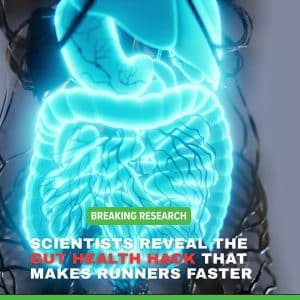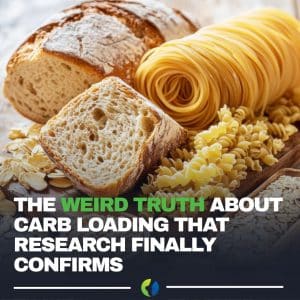What you eat provides not only the fuel to get you from point A to point B while running, but also the raw ingredients for all the stuff that makes up your body.
Eating properly is especially important to competitive runners as your body needs to be able to withstand and adapt to the rigors of heavy training in order to improve.
Our focus in this article is on the interaction of two of the most important components of your diet—protein and calcium.
Practically everybody knows the basic role of these two nutrients: protein helps build and repair muscle tissue, and calcium is used to strengthen your bones. Both are important for recovery and improvement.
But protein and calcium interact in a complex fashion, and some studies have suggested that consuming too much protein can actually cause calcium loss, hence leading to weaker bones.
To figure out if this is something runners need to be worried about, we’ll have to consult the scientific literature.
The correlation between protein and calcium
It is well-established that increasing your protein intake will also increase your calcium excretion in your urine. A 1998 study of elderly subjects in Japan, for example, demonstrated a consistent positive correlation between protein intake and calcium levels in urine.
Protein intake and calcium loss
In a review study on the benefits and drawbacks of high dairy intake, Roland Weinsier and Carlos Kruimdieck at the University of Alabama describe how protein intake creates acids inside the body, which in turn bind to calcium and end up being excreted in urine. This is troublesome because low calcium intake can lead to low bone density.
Because of this, we would expect studies of dietary habits and bone health to find that high protein intake is associated with lower bone mass as a result of chronically high calcium loss.
Protein and muscular strength
Some studies of elderly people find this same result, but paradoxically, others find that high protein intake is associated with stronger bones in elderly people.
One simple explanation might be that, because inadequate protein intake leads to muscular weakness, this could explain the healthy bone strength in people with high protein diets.
Though muscular strength does play a role in bone health, the situation is more complicated—calcium and protein interact with one another in a manner dependent on their relative intake levels, as illuminated by Robert Heaney in a 2002 article.
Protein intake does indeed increase calcium loss via the urine. In response to this loss, the body releases a hormone to activate three mechanisms to increase the availability of calcium. One of these is to salvage calcium from skeletal bones, which can explain the loss in bone mass associated with high-protein diets in some studies.
But the two other effects, synthesizing an activated form of vitamin D in the kidneys, and directly increasing the absorption of calcium from the gut, both work to counteract the calcium lost when protein intake is high.
Heaney supports this by citing a study that found bone mass increased in people who took a calcium supplement and had high protein intake, but bone mass decreased when protein intake was low, even when the subjects were taking a calcium supplement.
Effects of protein and calcium in athletes
None of the studies we’ve looked at involved athletes. In fact, most of them involved elderly people at risk of bone fractures, which are a ways removed from competitive distance runners (no offense to any Masters athletes!).
However, calcium plays an important role in bone strength in younger, healthy distance runners too:
- Research reveals that calcium intake and physical exercise work together to build bone mass in young people, and low calcium intake was associated with stress fractures in distance runners in a 1990 study.
- Further, a 2008 paper reported that calcium supplementation decreased the risk of a stress fracture in female US Navy recruits.
Conclusion
The lesson to take from this is that your calcium and protein intake are both important, and should be proportional to one another.
For example, if you are actively trying to increase your calcium intake while recovering from a tibial stress fracture, you should make sure you increase your protein intake as well.
And if you are trying to eat more protein so you’re better recovered during a block of intense training, make sure you get enough calcium, too.
Dairy foods are a great source for both, as long as you aren’t lactose intolerant.
It can be overwhelming to try to cover all of the particulars when thinking about your diet, but one easy part is balancing out calcium and protein intake so both nutrients can work together to make you stronger.
RunnersConnect Insider Bonus
Download our free Stress Fracture Treatment Outline.
It’s a PDF with the treatment options for runners with stress fractures.





4 Responses
I’ve done quite a bit of reading on the above subject. I personally conclude that the “bone health” related to diet needs more research and specifically with athletes. It seems obvious that fractures are more a problem for old inactive people than for younger and more active people. It’s rare for a person in the developed countries of the world to have a true protein deficiency so why is there always a recommendation for more protein? One study I read suggests that too much protein (especially animal protein) affects bone health in a negative way because, although everyone can lose some bone over time, those with too much animal protein in the diet don’t reform bone as well. That is one of the reasons that vegans claim to have healthier bone masses. It is also a reason that dietary calcium should not come from dairy products (milk, cheese, yogurt etc) but from green vegetables or maybe supplements.
Enjoyed the article – not much help though without details about how to balance protein and calcium intake.
Am I supposed to know how to balance these two? I can find out what the recommended protein intake for athletes is, and I can find out what the daily recommeded rate for calcium is – is this in balance? I have no idea so what value is the info provideed?
Can’t wait to hear more about this important research !!!
I’ve been meaning to comment on this, because one of my grad school papers and presentations for my Macronutrients course was on Protein and Bone Health! Protein is BOTH anabolic AND catabolic. When they’ve compared various diets, those consuming meat (which has all the essential amino acids=complete protein source) and even vegetarians have higher serum IGF-1 than vegans (plant-protein only). IGF-1 is the precursor to growth hormone and of course important to building muscle and bone. Hence, this is why eating meat can be very beneficial to both athletes and the elderly (who generally eat less and suffer sarcopenia and osteoporosis). Also, our ancestors actually consumed 2x more meat and 3x more plant food than we do today. We are “wired” to consume meat– for this reason and the hormonal benefits, I personally would never cut out meat. To say we are overconsuming meat is actually not the problem. Rather the underconsumption of plant food is moreso the problem, which provide a source of alkaline salts (~potassium citrate) that “buffers” the sulfuric acid from meat, rather than the buffering coming from the bone minerals (which are then excreted in the urine). The conclusion of my presentation was that optimal bone mass may be achieved by decreasing animal protein intake and/or increasing plant protein intake.
Hello Camille, I read your response to Bone & Stress Fractures. If you think meat consumption is OK, I suggest you read The China Study. You might also check out the website of Dr McDougall. Finally, since you may be a runner, I suggest that you read Born To Run. It is a book based on a true story which talks about the life style of Indian runners in the Copper Canyons of Mexico. You will find this book fascinating as a runner and you will get their take on diet and running and much more. You may not have a cholesterol problem at your age (since you are a student, I’m guessing that you are in your 20s) but many Americans do have a problem with cardiovascular disease which seems highly related to excess cholesterol. Cholesterol does not exist in plant foods. Our “ancestors” did not have easy access to animal foods. There were no grocery stores and they had no weapons or tools to catch or slaughter animals. Even if they did eat meat, chances are that they didn’t live long since the average life expectancy as recently as the 19th century was probably around 25 years. If you want to stay healthy and live long, I suggest you reduce or eliminate animal foods, including dairy. Good luck.